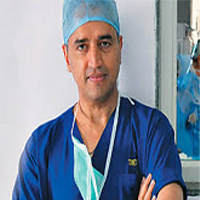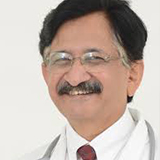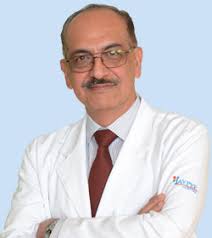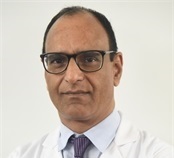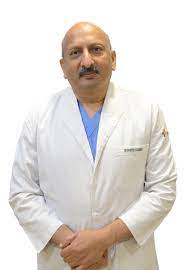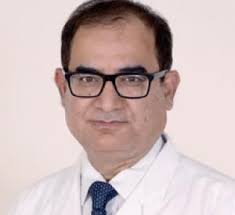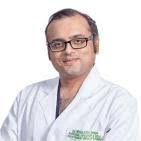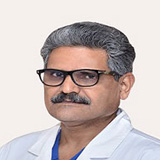Atrial Septal Defect (ASD) Surgery IN INDIA
Atrial Septal Defect (ASD) Surgery in India: Affordable Care with World-Class Expertise
Atrial Septal Defect (ASD) is a congenital heart condition that, hole in the wall between the two upper chambers of the heart. This hole lets blood flow from one side of the heart to the other, mixing oxygen-rich and oxygen-poor blood. Over time, this can make the heart work harder and lead to problems like shortness of breath or tiredness. Many people are born with it, and while small holes may not cause issues, larger ones often need surgery to fix them. If it is left untreated, it can lead to problems such as heart failure, pulmonary hypertension, and arrhythmias.
It’s a silent battle fought within. It represents a fragile bridge between two chambers of life, where oxygen and strength should flow freely. For those born with it, every breath can feel heavier, and every heartbeat reminds them of an unseen struggle. But this condition, though daunting, also carries the promise of healing. With each diagnosis comes the opportunity to mend what was once broken, to restore balance, and to give the heart the chance to beat stronger and steadier for a lifetime.
What are the symptoms of Atrial Septal defect ?
Many people with a small defect might not notice anything unusual, but as the hole in the heart allows extra blood to flow into the lungs, signs can start to appear over time. Children with ASD may experience frequent lung infections, struggle to gain weight, or tire quickly during play. As they grow older, the symptoms can become more noticeable, especially with physical activity, leading to shortness of breath, fatigue, or even heart palpitations. Adults with untreated ASD might develop swelling in the legs or abdomen, experience irregular heartbeats, or even suffer from strokes. What starts as a silent heart condition can lead to bigger challenges if left untreated, but with proper care, these symptoms can be managed, and life can return to normal.
What are the Indications for Atrial Septal Defect Surgery ?
ASD surgery is recommended in cases where:
- The defect is large enough to cause significant left-to-right shunting of blood.
- The patient experiences symptoms like shortness of breath, fatigue, or heart palpitations.
- There is evidence of right heart enlargement or pulmonary hypertension.
- The risk of arrhythmias, such as atrial fibrillation, is high due to the extra workload on the heart.
What is the Surgical Procedure for Atrial Septal Defect ?
There are two main types of procedures used to repair an atrial septal defect:
- Catheter-Based Repair – This minimally invasive approach involves inserting a catheter through a blood vessel in the groin and guiding it to the heart to place a device that closes the ASD. This method is typically used for smaller defects.
- Open-Heart Surgery – In more complex cases, open-heart surgery may be required. During this procedure, the surgeon makes an incision in the chest, repairs the defect using a patch, and then closes the chest. This is often necessary for larger defects.
What will be the Pre Surgical plan for Atrial Septal Defect Surgery ?
- Check Your Health-
Doctor’s Visit – The doctor will ask about how you’re feeling, such as if you’ve been tired a lot or out of breath. They’ll also check your heart and lungs.
Blood Tests – You’ll get some blood tests to make sure your body is ready for surgery and that there aren’t any hidden problems.
- Look at Your Heart-
Heart Ultrasound (Echo) – The doctor uses a special machine to see inside your heart and look at the hole (the ASD) and how big it is.
Chest X-ray – This shows how big your heart is and if your lungs are handling the extra blood flow.
Heart Rhythm Test (ECG) – They’ll check if your heart is beating normally or if there are any irregular rhythms.
- Special Heart Tests (if needed)-
Heart Catheterization – Sometimes, they use a tiny tube to measure pressure inside your heart and lungs. This shows how the ASD is affecting your heart.
- Get Your Body Ready-
Fixing Other Problems – If you have high blood pressure, diabetes, or other issues, your doctor will work on controlling these before surgery.
Medications – They might adjust your medicines to help your heart and body stay strong during surgery.
What is the Recovery period After ASD Surgery ?
After the surgery, patients typically spend 3-5 days in the hospital for close monitoring. The recovery process varies depending on the type of surgery, but most patients can resume light activities within two weeks. Full recovery usually takes around 4-6 weeks. International patients are advised to stay in India for at least two weeks post-discharge to attend follow-up appointments with their surgeon.
Hospitals in India are well-equipped to provide seamless care for international patients, with dedicated teams handling everything from visa arrangements to post-operative care. Moreover, the cost of ASD surgery in India is much lower than in Western countries, making India a top destination for heart surgery.
Case Study – An International Patient’s Journey
John, a 35-year-old man from Nigeria, had been experiencing breathlessness and fatigue for several years. After visiting a local cardiologist, he was diagnosed with a large atrial septal defect. John was advised to undergo surgery, but the cost in his home country was prohibitively expensive. After researching alternatives, John discovered that the cost of atrial septal defect surgery in India was almost 70% lower than in Nigeria.
John chose Fortis Escorts Heart Institute in New Delhi, known for its world-class cardiac care and expert surgeons. Dr. Ashok Seth, one of the best cardiac surgeons for atrial septal defect treatment in India, performed John’s surgery. The procedure was successful, and after a five-day hospital stay and an additional two weeks of recovery in India, John returned to Nigeria fully recovered.
John’s total cost including surgery, hospital stay, and accommodation in India, amounted to $6,500, a fraction of the cost he would have paid back home.
What is the Cost of Atrial Septal Defect Surgery in India ?
The atrial septal defect surgery cost in India varies depending on the complexity of the case and the type of procedure. On average:
- Catheter-based ASD repair costs between $4,500 to $6,000
- Open-heart ASD surgery ranges from $6,000 to $8,000.
Cost of the same surgery in countries like the US or UK can range from $25,000 to $50,000. The affordability of ASD surgery in India combined with the high success rate makes it a preferred choice for international patients.
Cost Comparison in top 5 Destination for medical treatment
- United States – Cost: $40,000 – $50,000
- United Kingdom – Cost: $30,000 – $45,000
- Australia: Cost – $20,000 – $40,000
- Germany: Cost – $25,000 – $40,000
- Canada: Cost – $35,000 – $50,000
- India: Cost – $4,500 – $8,000
How much is the stay period in India and at the Hospital for Atrial Septal Defect ?
International patients are typically required to stay in India for 2-3 weeks after the surgery to ensure proper recovery and to attend follow-up visits with their surgeon. Hospitals like Max Super Speciality Hospital and Fortis Escorts Heart Institute provide international patient departments that offer assistance with travel, accommodation, and even local sightseeing for companions.
Hospital stays usually last 3-5 days after surgery, during which patients are closely monitored by medical staff. The remaining recovery time is often spent in a comfortable recovery facility or hotel, where patients can rest before returning home.
What is the Success rate of Atrial septal defect Surgery?
The success rate of Atrial Septal Defect (ASD) surgery is remarkably high, with over 95% of cases leading to full recovery and a greatly improved quality of life! For most people, this surgery completely fixes the problem, allowing them to live normal, healthy lives afterward.
Patients often experience more energy, fewer symptoms, and a lower risk of future heart problems. Plus, the risk of complications is very low, especially when the surgery is done by experienced doctors.
With modern techniques, whether it’s a traditional surgery or a minimally invasive procedure, ASD repair has become a routine and highly successful operation. This gives hope and confidence to anyone facing the surgery, it’s a life-changing step towards a healthier, stronger heart!!
Top Atrial Septal Defect (ASD) Surgery Doctors in India
The right doctor to consult for a Atrial Septal Defect (ASD) Surgery case.
Dr. Ashok Seth
Year of experience: 40
Senior Consultant at Fortis Escorts Heart Institute, Delhi
Dr. Atul Mathur
Year of experience: 41
Executive Director and Senior Consultant at Fortis Escorts Heart Institute, Delhi
Dr. D.K. Jhamb
Year of experience: 29
Director and Senior Consultant at Shalby Sanar International Hospital, Gurgaon, India
Dr. Ganesh K. Mani
Year of experience: 37 Years of Experience
Dr. K. K. Saxena
Year of experience: 44
Consultant at Indraprastha Apollo Hospital, Delhi
Dr. Mahesh Chandra Garg
Year of experience: 49 Years of Experience
Dr. Murtaza Ahmed Chishti
Year of experience: 34 years of experience
Dr. Nikhil Kumar
Year of experience: 42
Senior Consultant at Fortis Memorial Research Institute, Gurgaon
Dr. Praveen Chandra
Year of experience: 37+ Years of Experience
Dr. Rajneesh Malhotra
Year of experience: 31+ Years of Experience
Dr. Sandeep Attawar
Year of experience: 22 years of experience
Dr. Sanjeev Chaudhary
Year of experience: 30
Chairman and Senior Consultant at Marengo Asia Hospitals Formerly W Pratiksha Hospital, Gurgaon
Dr. T. S. Kler
Year of experience: 48
Senior Consultant at BLK Super Speciality Hospital
Dr. Udgeath Dhir
Year of experience: 18+ Years of Experience
Dr. Y K Mishra
Year of experience: 32 years of experience
Looking For The Best Doctor & Hospital?
Fill up the form and get assured assitance within 24 hrs!
FAQs
FAQs
1- What is the best method for ASD repair?
Depending on the size and location of the defect, either catheter-based or open-heart surgery may be used. Your surgeon will recommend the best option for you.
2- How long does recovery from ASD surgery take?
Full recovery typically takes 4-6 weeks, but light activities can be resumed within two weeks.
3- What is the average cost of atrial septal defect surgery in India?
The cost ranges from $4,500 to $8,000, depending on the type of procedure and hospital.
4- Are there any risks associated with ASD surgery?
Like any surgery, there are risks such as infection, bleeding, or arrhythmias. However, India’s top cardiac surgeons ensure high success rates.
5- Why is India a popular destination for ASD surgery ?
India offers highly skilled surgeons, state-of-the-art facilities, and significantly lower costs, making it an ideal choice for international patients.
6- How long will I need to stay in the hospital after ASD surgery?
Most patients stay in the hospital for 3-5 days after surgery for monitoring.
7- Who are the best cardiac surgeons for ASD treatment in India?
Renowned surgeons like Dr Raju Vyaas in Shalby Sanar Hospital, Dr. Ashok Seth at Fortis Escorts Heart Institute and Dr. Naresh Trehan at Medanta are considered top experts in this field.
8- Can ASD surgery be done without open-heart surgery?
Yes, catheter-based repair is possible for smaller defects, offering a minimally invasive alternative to open-heart surgery.
9- What are the chances of complications after ASD surgery?
With modern techniques, complications are rare, and the success rate for ASD surgery in India is very high, uptill 95%
10- How soon can I travel back to my home country after ASD surgery?
Most international patients can travel home 2-3 weeks after the surgery, once cleared by their
Get FREE Evaluation
Treatment plan and quote within within 24 hrs!
Let us help you
Get your personalized Estimate Now
Top Doctors & Surgeons in India
Best Hospitals in India
Best Treatments in India
Indian Medical Visa From
Copyright © 2025 Al Afiya Medi Tour | All Rights Reserved.







